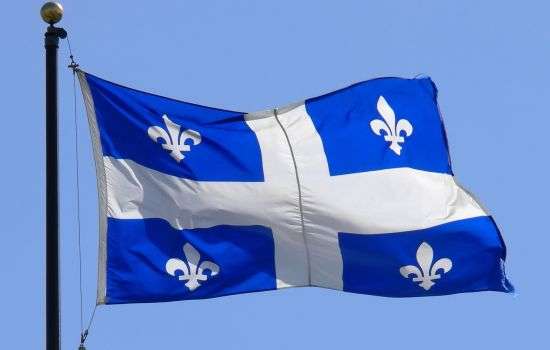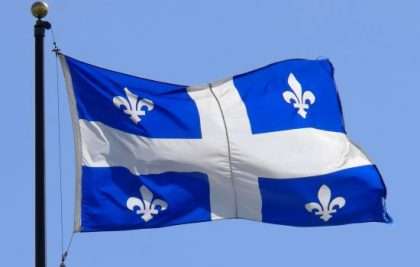Québec ISPs May be Ordered to Institute Online Gambling Blacklist
Troubling news for online-gambling enthusiasts and freedom-of-information defenders has emerged from the Canadian province of Québec, where lawmakers have been presented with a budget that calls for the province’s Internet service providers, or ISPs, to impose an online gambling blacklist.
 Such an implementation, which was included in a budget proposal released a little over a week ago, would block Québec’s Internet users from accessing hundreds of sites, based in other countries, which currently offer services to Québécois players.
Such an implementation, which was included in a budget proposal released a little over a week ago, would block Québec’s Internet users from accessing hundreds of sites, based in other countries, which currently offer services to Québécois players.
News of the proposal slowly filtered out through a handful of mainstream outlets in recent days, given the proposal’s burial amid a budget over 600 pages in length. The budget, now available online, includes the following:
• Curbing illegal online gambling
For the purpose of curbing illegal online gambling, amendments will be made to the Consumer Protection Act, the Act respecting the Régie des alcools, des courses et des jeux [the RACJ is the Quebec agency that regulates the province’s alcohol, lottery, publicity contests, gambling, racing, and combat sports industries] and the Act respecting [Loto-Québec] so that Internet service providers are not allowed to provide access to an online gaming and gambling website whose name is on a list of illegal sites drawn up by Loto-Québec.
The budget also includes a forecast for the government-owned Loto-Québec that projects an average annual increase for the state-run lottery’s various enterprises of CAD $27 million, once the blacklists are in effect. The increase would come, theoretically, by driving current players on unregulated sites to Loto-Québec’s Espacejeux web site, along with other sites that may eventually be licensed by Québécois, such as Amaya Gaming.
The plan is likely to face significant legal challenges. A recent report on the budget inclusion appearing in Toronto’s Globe and Mail, in neighboring Ontario, quoted both Québécois ISPs protesting the proposal as well as legal experts deriding the proposal. The Globe and Mail piece quoted University of Ottawa law professor Michael Geist as calling the proposal a “remarkable and possibly illegal plan as the government seeks to censor the Internet for its own commercial gain.” Geist also noted that the proposal would likely be subject to both free-speech and jurisdictional challenges, since telecommunications in Canada is under the purview of the federal government, not individual provinces.
Relatively unreported to date is the possibility that such a proposal, if enacted and implemented, could escalate tensions between Québécois and the Kahnawà:ke Mohawk Territory, which sits within Québec, just outside Montreal. The Kahnawake (as the name is commonly spelled) operate both the Kahnawake Gaming Commission (KGC) and Mohawk Internet Technoligies (MIT), and have been one of the world’s largest grey-market online gambling jurisdictions for well over a decade.
The Kahnawake nation, though only 8,000 strong in population, was able to its relative power in online gambling matters through a chance happening of early Internet infrastructure, when the tribe and Canadian authorities agreed to run a major Internet pipeline serving North America through Kahnawake lands. The easy access gave the KGC ready-made access to offer such services as online gaming the world over.
Québec’s authorities have long maintained that the KGC and other Kahnawake operations are illegal, just as the Kahnawake have defended them on grounds of sovereignty, even claiming as “aboriginal right to online gambling.” Québec’s authorities, however, have been loath to press the issue by force, as would almost certainly have to occur; the last time that happened between Quebec and the Mohawk people, back in 1992, the “Oka Crisis” occurred, in which a police was killed and nearby highways and railways were blockaded.
Such tensions still simmer beneath the surface, just outside Montreal.
Interestingly, a statement issued by PokerStars Director of Corporate Communications, Eric Hollreiser, welcomed the Québécois proposal on behalf of PokerStars, an interesting occurrence given PokerStars’ own battles to win jurisdictional approval in at least two different US states. Wrote Hollreiser:
We read the budget address with great interest and are happy to see the government seeking ways to work with the private sector to contribute to Loto-Quebec’s growth in online gaming, for the benefit of taxpayers and the protection of consumers. Amaya has been a long time licensed partner of Loto-Quebec, providing it with both online and land-based games and support services. As the global leader in online gaming, Amaya would happily expand its existing partnership with Loto-Quebec to go through the necessary process to become an online solutions supplier accredited by Loto-Quebec and to help define the future online gaming guidelines.
The Québécois blacklist proposal has a long road to negotiate before becoming reality. However, no matter which side wins out, it’s likely to be an interesting story.




















COMMENTS